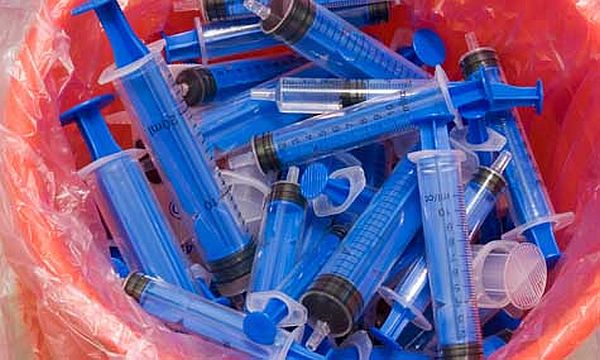In the shifting landscape of our planet, preserving its health, and by extension, our own, is no longer just the responsibility of healthcare and environmental organizations. It is incumbent upon each one of us to make a difference. A significant but often overlooked component of this is the proper disposal of medical waste. As engineering professionals, you have an exceptional opportunity to lead the way in sustainable practices, starting with the correct handling and disposal of medical waste right at your homes or workplaces.
Understanding Medical Waste
Before delving into the technicalities of medical waste disposal, it’s essential to understand what constitutes medical waste. According to the World Health Organization, medical waste encompasses a wide range of materials, from used needles and syringes to soiled dressings, body parts, diagnostic samples, blood, chemicals, pharmaceuticals, medical devices, and radioactive materials. Improper disposal of such waste can lead to dire consequences, including environmental damage and the spread of infectious diseases.
The Environmental Impact of Improper Medical Waste Disposal
Medical waste, if not handled correctly, can be a significant source of pollution. It could end up in water bodies, leading to water contamination and harming aquatic life. Improper disposal could also result in the emission of harmful gases, contributing to air pollution and global warming. As stewards of the environment, it is imperative for us to adopt sustainable practices in all aspects of our lives, including the disposal of medical waste.
DIY Medical Waste Disposal: The Basics
For the average person, medical waste might not seem like a pressing concern. However, with the increase in home healthcare services and the prevalence of self-administered treatments for chronic conditions, the generation of medical waste at home has grown exponentially. Here’s how you can dispose of it safely and sustainably:
- Sharps Disposal: Items like needles, lancets, and syringes fall into this category. They should never be thrown directly into the trash. Instead, use a sharps disposal container or a hard, puncture-resistant plastic container.
- Medication Disposal: Avoid flushing medications down the toilet or drain as they can contaminate water supplies. Many pharmacies offer take-back programs or you can mix them with undesirable substances like coffee grounds or kitty litter and place them in a sealed container before disposing of in the trash.
- Biological Waste: Items like soiled dressings, gloves, or other materials contaminated with bodily fluids should be placed in plastic bags before disposing of in the trash.
Remember, each local area may have specific guidelines for medical waste disposal, so always check with your local waste management facility.
Innovations in Medical Waste Disposal
As engineering professionals, it’s worth noting the cutting-edge advancements being made in the field of medical waste disposal. Innovations such as autoclaving, chemical decontamination, and advanced thermal treatment technologies are revolutionizing the industry. These processes not only neutralize the hazardous elements in medical waste but also reduce its volume, making disposal easier and more eco-friendly.
Compliance with Regulatory Standards
Adhering to local and international standards for medical waste disposal is crucial. Regulatory bodies such as the Environmental Protection Agency (EPA) in the U.S., the European Waste Catalogue (EWC) in Europe, and the Basel Convention on a global scale, provide extensive guidelines on the correct handling and disposal of medical waste.
The Role of Engineering Professionals in Sustainable Medical Waste Disposal
Engineering professionals are uniquely positioned to influence the future of sustainable medical waste disposal. By integrating principles of environmental sustainability into the design and operation of medical waste disposal Houston, you can help minimize the ecological footprint of medical waste. Furthermore, innovations in this field can contribute to the development of new products and technologies that facilitate more efficient and environmentally friendly waste disposal.
Effective Medical Waste Disposal: A Step Towards Sustainable Healthcare
An integral part of sustainable healthcare is ensuring the safe and efficient disposal of medical waste. A report from the World Health Organization estimates that 15% of global waste from healthcare activities is hazardous, which can be infectious, toxic, or radioactive. By adopting sustainable practices for medical waste disposal, we not only ensure our health and safety but also contribute to the global effort towards a sustainable healthcare ecosystem.
Building Awareness and Education
Raising awareness about the importance of proper medical waste disposal is key to promoting sustainable practices. This can be done through educational programs, workshops, or even social media campaigns. As professionals in the field, your expertise can be invaluable in spreading knowledge and fostering a culture of sustainability within your community and beyond.
The Road Ahead: Challenges and Opportunities
While significant strides have been made, numerous challenges remain in the realm of medical waste disposal. Issues such as lack of awareness, inadequate infrastructure, and non-compliance with regulations continue to persist. However, these challenges also present opportunities. By investing in research and development, advocating for stringent policies, and fostering a culture of sustainability, we can transform these obstacles into stepping stones towards a healthier and greener future.
Conclusion
In the grand scheme of environmental conservation and health safety, medical waste disposal may seem like a small piece of the puzzle. However, its impact is far-reaching, affecting not just our health, but also the wellbeing of our planet. As engineering professionals, you are armed with the knowledge and skills to make a significant difference in this field. By adopting and promoting sustainable practices, understanding and complying with regulations, and leveraging your skills to innovate, you can contribute to the broader vision of a sustainable and healthy world. Remember, every action counts, and the journey to sustainability begins with individual responsibility.
Article Submitted By Community Writer




